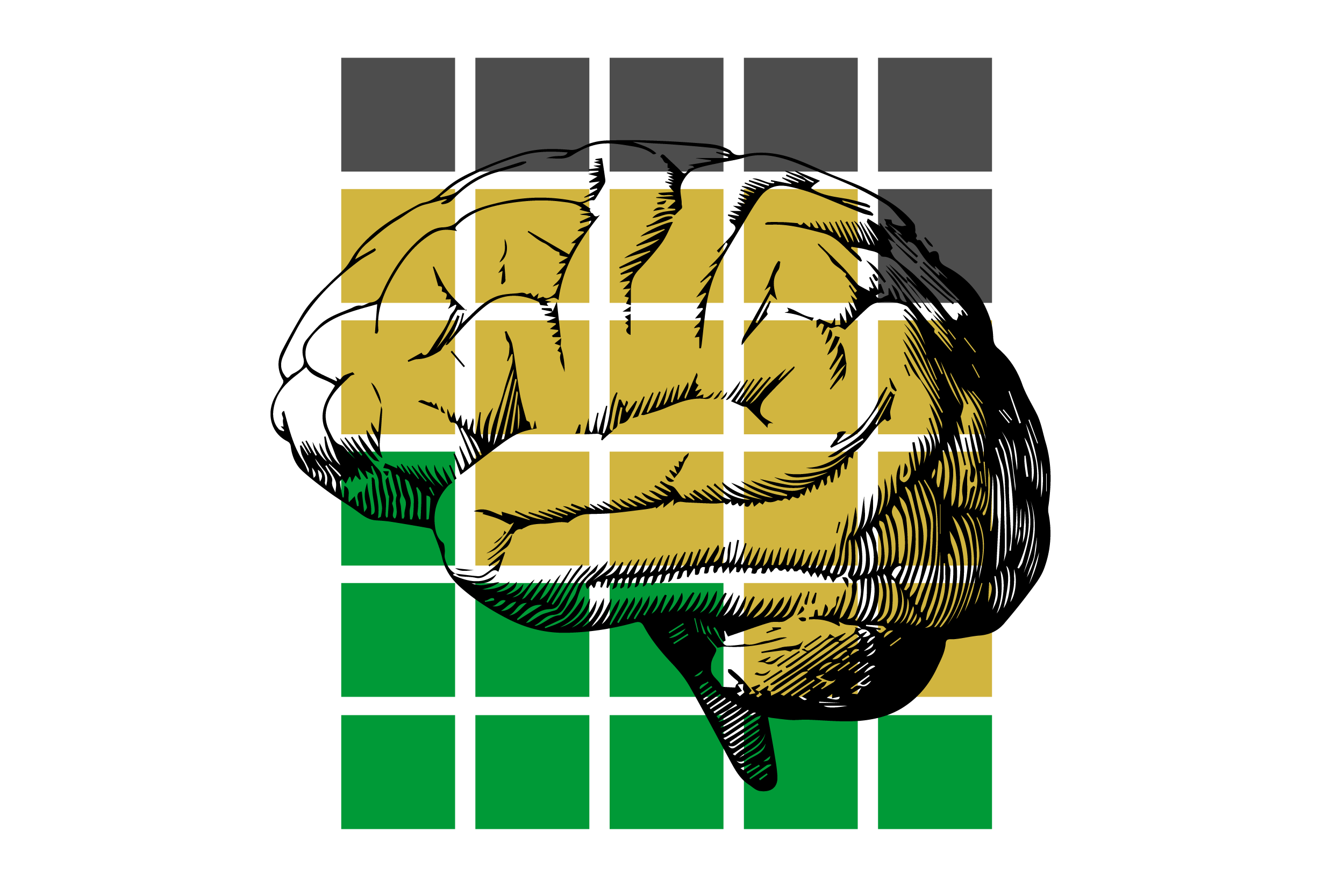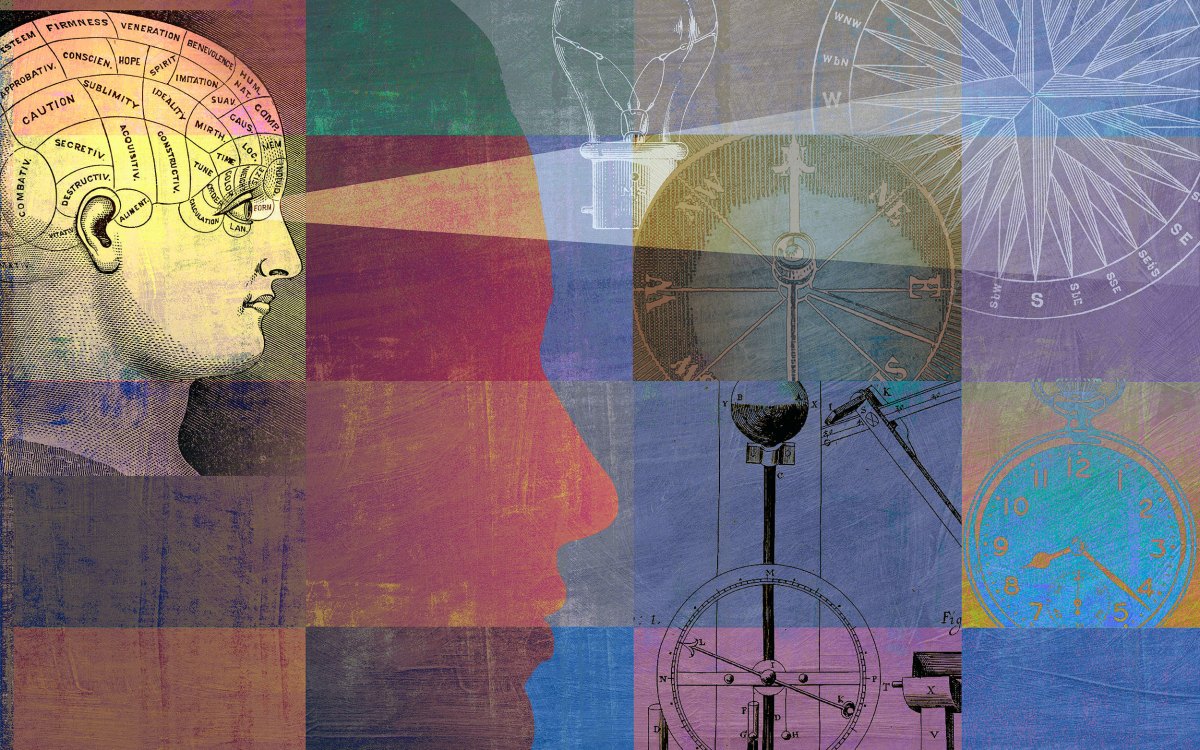
Harvard language expert explores how the brain tries to make sense of those pesky missing tiles in popular word puzzle.
Illustration by Judy Blomquist/Harvard Staff
Pinker tries Wordle
Psycholinguist shares insights on brains at play, including his own
It’s simple, it’s free, it’s addictive, it’s Wordle. But what makes the online daily puzzle so appealing? And what parts of the brain are being activated when players try to guess a five-letter word in six tries? The Gazette turned to Steven Pinker, a psycholinguist and Harvard’s Johnstone Family Professor of Psychology, for answers.
Q&A
Steven Pinker
GAZETTE: Have you played Wordle?
PINKER: I played once and enjoyed it enough that I vowed never to play it again, as a safeguard against diverting time from work. It’s a habit I acquired 40 years ago as an assistant professor when I got my first personal computer, fired up a game of Pac-Man that came with it, and realized that I had spent three hours eating dots and would never get tenure if I didn’t stay away from gaming. Perhaps mindful of its capacity to destroy lives and careers, Wordle presents only one puzzle a day.
GAZETTE: Why are some people better than others at this kind of game?
PINKER: I’d guess it’s a combination of several traits: (1) general intelligence, which embraces an ability to manipulate abstract symbols according to rules; (2) verbal intelligence, which includes commanding a large vocabulary; (3) “phonological awareness,” the knowledge that words are composed of sounds (a critical component of reading, and the main skill missing in dyslexia); (4) literacy in English, including familiarity with large numbers of words and spelling patterns; (5) “need for cognition,” the personality trait consisting of pleasure taken in solving intellectual problems for their own sake.
Asked what makes Wordle so popular, Pinker said, “I imagine it has the optimal level of reward: It’s hard enough to require concentrated thought, but not so intractable as to leave people frustrated most of the time.”
File photo by Stephanie Mitchell/Harvard Staff Photographer

GAZETTE: What is going on at the neurological level when we try to solve a word puzzle?
PINKER: I don’t know of any studies of people solving visual word games while their brains are being scanned. Some good guesses about the areas that would be engaged would include the visual word form area along the bottom back of the brain; Wernicke’s area, which sits near the primary auditory cortex and is connected to speech areas, which handle word sounds; the dorsolateral prefrontal cortex, a large patch high in the side of the front half of the brain, which handles working memory, the mental scratch pad we use while solving demanding problems; and the frontal poles, the frontmost part of the brain, which holds in mind the abstract goals we set ourselves, the ones that aren’t triggered by our immediate surroundings. In every case but the last I’d expect greater activation in these regions in the left hemisphere than in their counterparts on the right.
GAZETTE: Can playing Wordle improve memory?
PINKER: Sadly, I doubt it. There have long been hopes that the brain is like a muscle, so that one kind of exercise strengthens it for many different tasks. Hence the old idea that Latin would instill formal, logical reasoning in pupils, and the more recent idea that computer programming would do it. Or the infamous advice to seniors to stave off dementia by playing a lot of Sudoku. In reality, cognitive psychologists find that if you train students in Latin grammar, they get really good in Latin grammar, but not much else, and so on for Sudoku, Wordle, and other games. To improve memory, it helps to think deeply and actively about a subject, and to master some mnemonic tricks like associating items in a list with locations in your home.
GAZETTE: Why do you think so many people find something this simple so addictive?
PINKER: I imagine it has the optimal level of reward: It’s hard enough to require concentrated thought, but not so intractable as to leave people frustrated most of the time.







